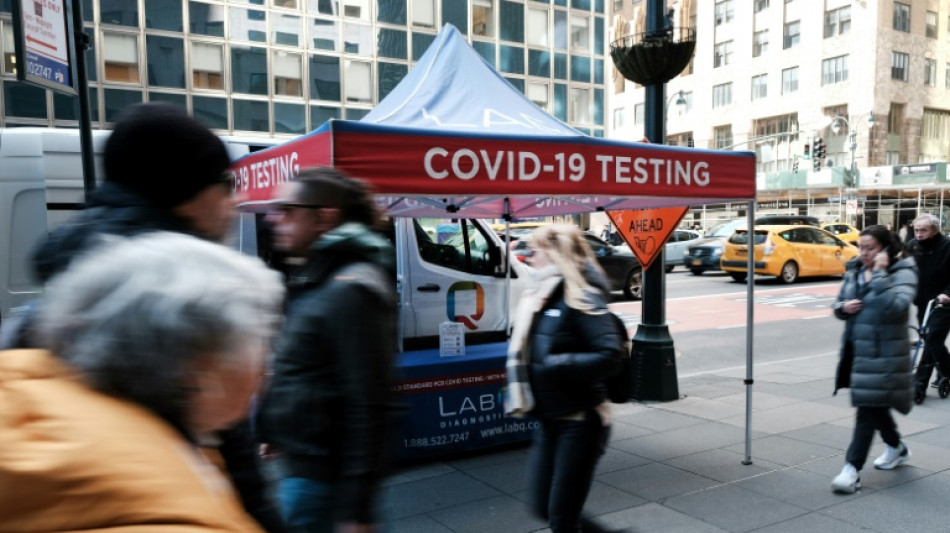
-
 France set to face New Zealand with second-string squad
France set to face New Zealand with second-string squad
-
Eyeing China, EU moves to ban 'high-risk' foreign suppliers from telecoms networks
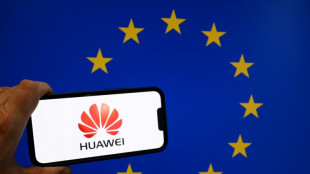
-
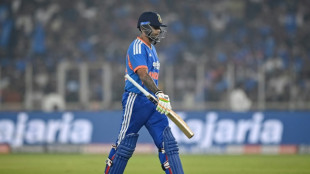 Struggling Suryakumar will not adapt style to find form before T20 World Cup
Struggling Suryakumar will not adapt style to find form before T20 World Cup
-
World stocks sink, gold hits high on escalating trade war fears
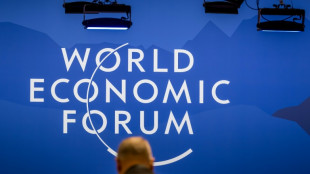
-
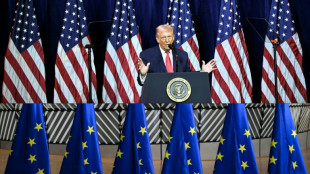 Easier said than done for US to apply tariffs on single EU states
Easier said than done for US to apply tariffs on single EU states
-
Canada military models response to US invasion: report
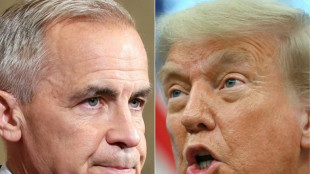
-
 Salah returns to Liverpool training after AFCON
Salah returns to Liverpool training after AFCON
-
Milan menswear shows add bling with brooches

-
 Scotland recall Gray, Cherry for Six Nations
Scotland recall Gray, Cherry for Six Nations
-
Scheib storms to Kronplatz giant slalom victory as Brignone impresses in World Cup return

-
 Chagos Islands: international dispute and human drama
Chagos Islands: international dispute and human drama
-
Thousands of farmers protest EU, Mercosur trade deal ahead of vote

-
 Men's Fashion Week kicks off in Paris with tributes for Valentino
Men's Fashion Week kicks off in Paris with tributes for Valentino
-
Lake named as captain as Wales unveil Six Nations squad

-
 Royals visit deadly train crash site as Spain mourns
Royals visit deadly train crash site as Spain mourns
-
Police, pro-Kurd protesters clash at Turkey border with Syria
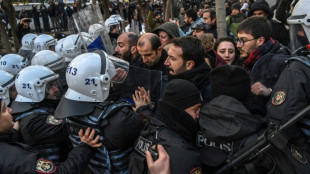
-
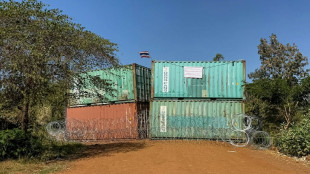 Thai forces razed Cambodian homes on border: rights group
Thai forces razed Cambodian homes on border: rights group
-
Jellyfish-inspired Osaka battles into Australian Open round two
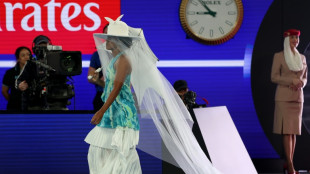
-
 Valentino taught us to respect women, says partner
Valentino taught us to respect women, says partner
-
Australia stiffens hate crime, gun laws after Bondi attack

-
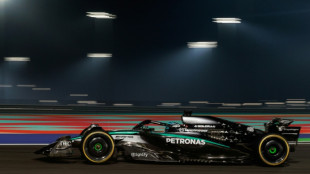 Mercedes chief designer Owen to leave F1 team
Mercedes chief designer Owen to leave F1 team
-
Trump unloads on allies as Davos showdown looms
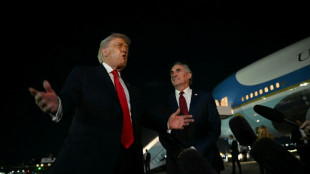
-
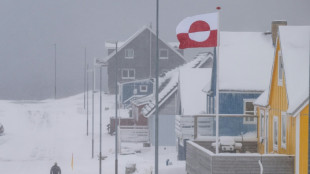 Moscow revels in Trump's Greenland plans but keeps concerns quiet
Moscow revels in Trump's Greenland plans but keeps concerns quiet
-
Global tourism hit new record level in 2025: UN
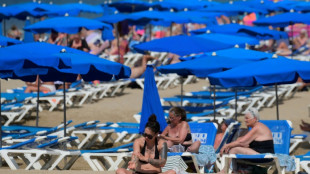
-
 Senegal poised to party with parade honouring AFCON champs
Senegal poised to party with parade honouring AFCON champs
-
Osaka emerges for Melbourne opener under hat, veil and parasol
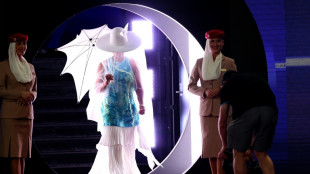
-
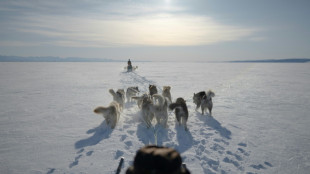 Dogsled diplomacy in Greenland proves elusive for US
Dogsled diplomacy in Greenland proves elusive for US
-
Almost half of Kyiv without heat, power, after Russian attack
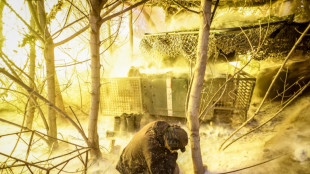
-
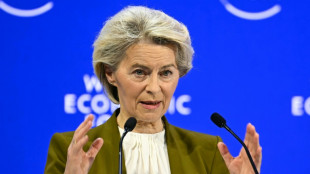 EU vows 'unflinching' response to Trump's Greenland gambit
EU vows 'unflinching' response to Trump's Greenland gambit
-
Osaka steals show at Australian Open as Sinner strolls through

-
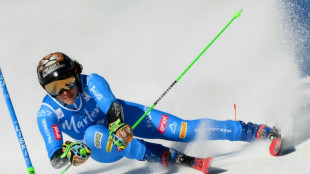 Brignone impresses in first run of Kronplatz giant slalom in World Cup comeback
Brignone impresses in first run of Kronplatz giant slalom in World Cup comeback
-
Osaka emerges for Melbourne opener under white hat and umbrella
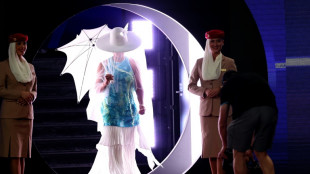
-
 Malawi suffers as US aid cuts cripple healthcare
Malawi suffers as US aid cuts cripple healthcare
-
Bessent says Europe dumping US debt over Greenland would 'defy logic'
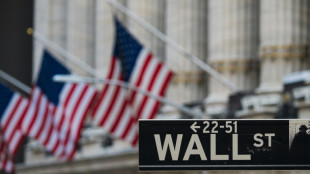
-
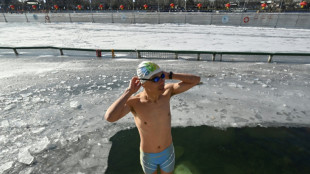 Freeze, please! China's winter swimmers take the plunge
Freeze, please! China's winter swimmers take the plunge
-
Talks between Damascus, Kurdish-led forces 'collapse': Kurdish official to AFP

-
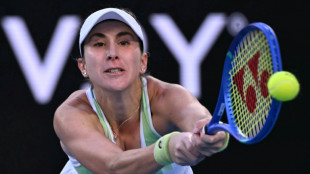 In-form Bencic makes light work of Boulter at Australian Open
In-form Bencic makes light work of Boulter at Australian Open
-
Spain mourns as train disaster toll rises to 41
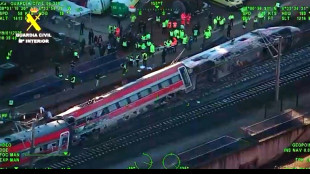
-
 Sinner into Melbourne round two as opponent retires hurt
Sinner into Melbourne round two as opponent retires hurt
-
Israel begins demolitions at UNRWA headquarters in east Jerusalem
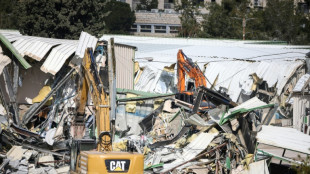
-
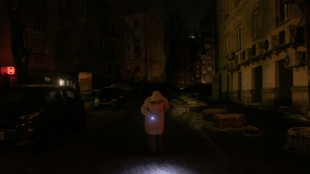 Almost half of Kyiv without heat, power, after Russian attack: govt
Almost half of Kyiv without heat, power, after Russian attack: govt
-
Veteran Monfils exits to standing ovation on Australian Open farewell

-
 Precision-serving former finalist Rybakina powers on in Melbourne
Precision-serving former finalist Rybakina powers on in Melbourne
-
South Korea's women footballers threaten boycott over conditions

-
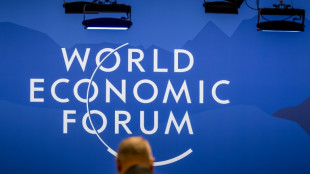 Equities sink, gold and silver hit records as Greenland fears mount
Equities sink, gold and silver hit records as Greenland fears mount
-
Australian lawmakers back stricter gun, hate crime laws

-
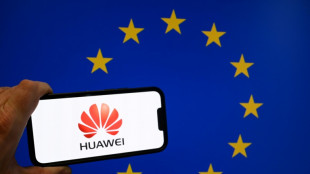 EU wants to keep Chinese suppliers out of critical infrastructure
EU wants to keep Chinese suppliers out of critical infrastructure
-
AI reshaping the battle over the narrative of Maduro's US capture
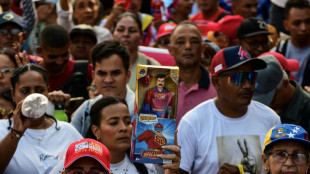
-
 Penguins bring forward breeding season as Antarctica warms: study
Penguins bring forward breeding season as Antarctica warms: study
-
Vietnam leader pledges graft fight as he eyes China-style powers
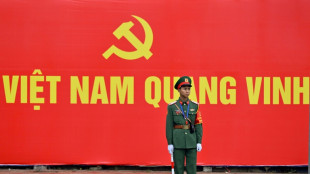
| RIO | -0.14% | 85.01 | $ | |
| CMSC | -0.17% | 23.44 | $ | |
| SCS | 0.12% | 16.14 | $ | |
| BTI | -2.5% | 56.8 | $ | |
| NGG | -0.63% | 80.38 | $ | |
| GSK | -0.34% | 48.055 | $ | |
| RBGPF | -1.87% | 82.5 | $ | |
| BCC | -2.13% | 83.724 | $ | |
| BCE | -0.19% | 24.095 | $ | |
| RYCEF | 0.06% | 17.06 | $ | |
| RELX | -2.51% | 40.61 | $ | |
| CMSD | -0.78% | 23.736 | $ | |
| BP | 0.18% | 35.445 | $ | |
| JRI | -0.22% | 13.67 | $ | |
| AZN | -4.41% | 90.439 | $ | |
| VOD | 0.26% | 13.505 | $ |

Scientists develop mobile printer for mRNA vaccine patches
Scientists said Monday they have developed the first mobile printer that can produce thumbnail-sized patches able to deliver mRNA Covid vaccines, hoping the tabletop device will help immunise people in remote regions.
While many hurdles remain and the 3D printer is likely years away from becoming available, experts hailed the "exciting" finding.
The device prints two-centimetre-wide patches which each contain hundreds of tiny needles that administer a vaccine when pressed against the skin.
These "microneedle patches" offer a range of advantages over traditional jabs in the arm, including that they can be self-administered, are relatively painless, could be more palatable to the vaccine-hesitant and can be stored at room temperature for long periods of time.
The popular mRNA Covid-19 vaccines from Pfizer and Moderna need to be refrigerated, which has caused distribution complications -- particularly in developing countries that have condemned the unequal distribution of doses during the pandemic.
The new printer was tested with the Pfizer and Moderna jabs, according to a study in the journal Nature Biotechnology, but the goal of the international team of researchers behind it is for it to be adapted to whatever vaccines are needed.
Robert Langer, co-founder of Moderna and one of the study's authors, told AFP that he hoped the printer could be used for "the next Covid, or whatever crisis occurs".
Ana Jaklenec, a study author also from the Massachusetts Institute of Technology, said the printer could be sent to areas such as refugee camps or remote villages to "quickly immunise the local population," in the event of a fresh outbreak of a disease like Ebola.
- Vacuum-sealed -
Microneedle patch vaccines are already under development for Covid and a range of other diseases, including polio, measles and rubella.
But the patches have long struggled to take off because producing them is an expensive, laborious process often involving large machines for centrifugation.
To shrink that process down, the researchers used a vacuum chamber to suck the printer "ink" into the bottom of their patch moulds, so it reaches the points of the tiny needles.
The vaccine ink is made up of lipid nanoparticles containing mRNA vaccine molecules, as well as a polymer similar to sugar water.
Once allowed to dry, the patches can be stored at room temperature for at least six months, the study found. The patches even survived a month at a balmy 37 degrees Celsius (99 Fahrenheit).
Mice which were given a vaccine patch produced a similar level of antibody response to others immunised via a traditional injection, the study said.
The printed patches are currently being tested on primates, which if successful would lead to trials on humans.
- 'A real breakthrough'? -
The printer can make 100 patches in 48 hours. But modelling suggested that -- with improvements -- it could potentially print thousands a day, the researchers said.
"And you can have more than one printer," Langer added.
Joseph DeSimone, a chemist at Stanford University not involved in the research, said that "this work is particularly exciting as it realises the ability to produce vaccines on demand".
"With the possibility of scaling up vaccine manufacturing and improved stability at higher temperatures, mobile vaccine printers can facilitate widespread access to RNA vaccines," said DeSimone, who has invented his own microneedle patches.
Antoine Flahault, director of the Institute of Global Health at the University of Geneva, said that production and access to vaccines could be "transformed through such a printer".
"It might become a real breakthrough," he told AFP, while warning that this depended on approval and mass production, which could take years.
Darrick Carter, a biochemist and CEO of US biotech firm PAI Life Sciences, was less optimistic.
He said that the field of microneedle patches had "suffered for 30 years" because no one had yet been able to scale up manufacturing in a cost-effective way.
"Until someone figures out the manufacturing scale-up issues for microneedle patches they will remain niche products," he told AFP.
D.Schneider--BTB



